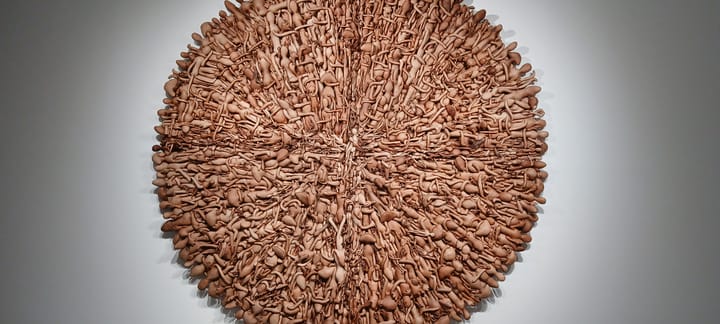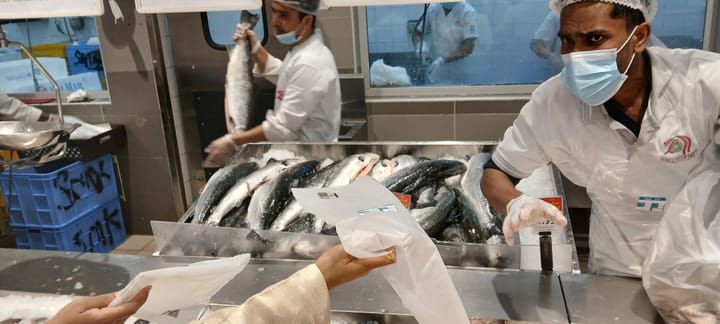Rodrigo Garcia: Gabo, Mercedes & an image of death as impenetrable, as object of a singular encounter, as departure
each person has their own singular encounter, not just with the deceased but also with the event itself, … death … Nobody can be denied their relationship to it, their membership in that society. And death as something that is, rather than as the lack of something, is sobering to behold. That seems to be the case even for the nurses in the room. They go about their business, but it seems to me that they are now in their heads, unable to avoid reflection. It’s not an occurrence that must ever get old.
— Rodrigo Garcia, A Farewell to Gabo and Mercedes: A Son’s Memoir, 2021, printed in the typeface of Sabon, created by Jan Tschichold between 1964 and 1967, p. 59.

The men move expertly, but nothing in their demeanor betrays any excessive familiarity, let alone boredom, with a task that they have performed innumerable times, with people of all ages and in all circumstances. Their attitude imbues the task with dignity. It’s what even strangers do always and everywhere for people who have died: take care of their bodies with seriousness. As he is carried down the stairs slowly, the stretcher has to be tilted until it is almost vertical, to negotiate the turn at the landing. For a moment I imagine my father upright, as if at attention, unseen and unseeing in the dark. We are all standing at the top or at the bottom of the stairs, watching in silence. Only my mother is seated, looking on, inscrutable. Unlike the death earlier, or the cremation later that evening, the feelings regarding this moment are devoid of mystery. They cut to the bone: he is leaving home, and he will never return.
— Ibid., p. 73.
The captain looked at Fermina Daza and saw on her eyelashes the first glimmer of wintery frost. Then he looked at Florentino Ariza, his invincible power, his intrepid love, and he was overwhelmed by the belated suspicion that it is life, more than death, that has no limits.
— Gabriel García Márquez’s Love in the Time of Cholera, at ibid., p. 105.
The sight of my father’s body entering the cremation chamber is mesmerizing and numbing. It feels both impossibly pregnant and meaningless. The only thing I can feel with any certainty at that moment is that he is not there at all. It remains the most impenetrable image of my life.
— Ibid., p. 84.


